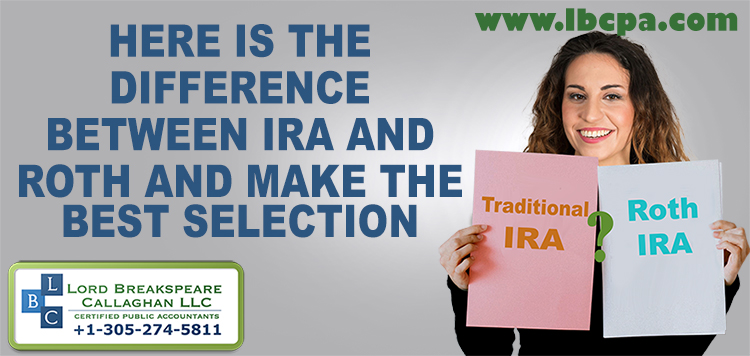LBCPA News 
Click here to go back
Is it a Good Time for a Roth Conversion?

The volatility in the stock market may have caused the value of your retirement account to decrease. But if you have a traditional IRA invested in stocks, a decline may provide a valuable opportunity by allowing you to convert your traditional IRA to a Roth IRA at a lower tax cost.
Traditional vs. Roth
Here are some key differences between these two types of accounts:
Traditional IRA. Contributions to a traditional IRA may be deductible, depending on your modified adjusted gross income (MAGI) and whether you (or your spouse) participate in a qualified retirement plan, such as a 401(k). Funds in the account grow tax-deferred.
However, you generally must pay income tax on withdrawals. You’ll also face a penalty if you withdraw funds before age 59½, unless you qualify for an exception. And you may face an even larger penalty if you don’t take your required minimum distributions (RMDs) after you reach age 73 (up from 72 for 2022 and going up to age 75 if you don’t reach age 73 before Jan. 1, 2033).
Roth IRA. Roth IRA contributions aren’t deductible. But withdrawals (including earnings) are tax-free as long as you are age 59½ or older and the account has been open at least five years. Plus, you’re allowed to withdraw contributions at any time tax- and penalty-free. In addition, you won’t be subject to RMDs.
If you won’t need the money for retirement, you can let the entire Roth IRA balance continue to grow tax-free for the benefit of your heirs. Beneficiaries generally will be required to take distributions, but the distributions will be tax free. (There could be estate tax consequences at your death if you have a very large estate.)
However, the ability to contribute to a Roth IRA is subject to limits based on your MAGI. Fortunately, no matter how high your income, you’re eligible to convert a traditional IRA to a Roth. But you’ll have to pay income tax on the amount converted.
Conversion considerations
If you’ve been considering a Roth conversion and your traditional IRA has lost value, converting now instead of waiting could minimize your tax hit. You’ll also avoid tax on future appreciation if the value of your account goes back up.
Before converting, take time to think through the details. Here are two key issues to consider:
1. Money to pay the tax bill. If you don’t have the cash on hand to cover the taxes owed on the conversion, you may have to dip into your retirement funds, eroding your nest egg. The more money you convert and the higher your tax bracket, the bigger the tax hit.
2. When you plan to retire. Typically, you wouldn’t convert a traditional IRA to a Roth IRA if you expect to retire soon and will start drawing down on the account right away. Usually, the goal is to allow the funds to grow and compound over time without any tax erosion.
Stretch out the tax bill
If the idea of paying the tax bite related to converting from a traditional IRA to a Roth IRA is daunting or simply unaffordable, consider a gradual conversion. It’s not an all-or-nothing process, so you can stretch out the tax bill over time, depending on how long you expect to wait to retire.
Suppose you have $100,000 in a traditional IRA. You could, for example, convert that in five steps: $20,000 per year for five years. We can estimate what the tax bite will be at varying steps.
Right for you?
There are also other issues that need to be considered before executing a Roth IRA conversion. If this sounds like something you’re interested in, contact us to discuss whether a conversion is right for you.
If you have any questions regarding Essential Business Accounting, Domestic Taxation, International Taxation, IRS Representation, U.S. Tax Implications of Real Estate Transactions or Financial Statements, please give us a call at +1-305-274-5811.
Source :Thomson Reuters






